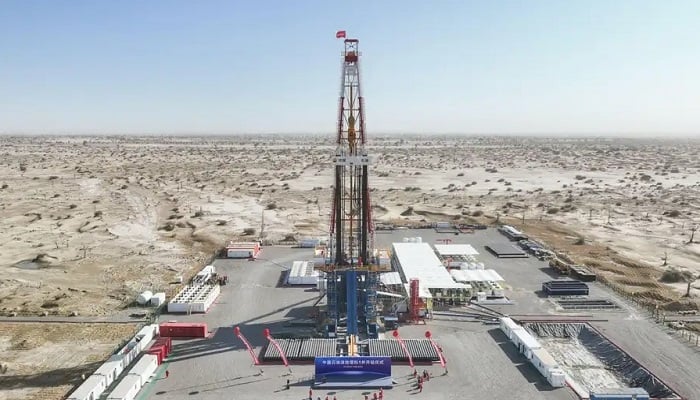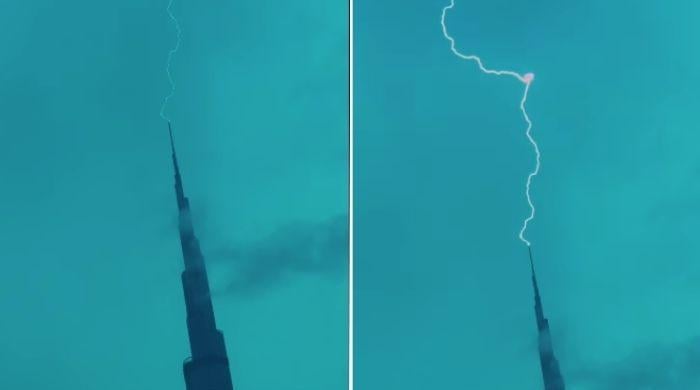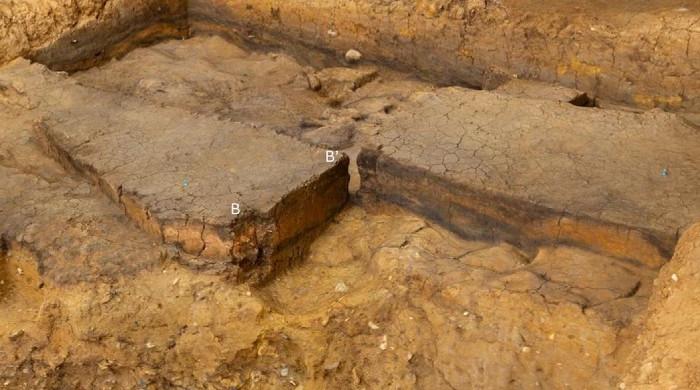Mystery boring: Why China wants to go 10,000-metre-deep into Earth
This ambitious project, undertaken by second largest economy in the world, seeks to explore new frontiers both above and below ground
June 03, 2023

If it’s not something like the journey to the centre of the Earth to explore the possible underworld then what it is? Chinese have once again plunged the world into bewilderment with everyone guessing what Beijing is up to this time.
Chinese scientists have embarked on a groundbreaking endeavour to drill a hole into the Earth's crust, delving 10,000 metres (32,808 feet) below the planet's surface, state media Xinhua reported.
This ambitious project, undertaken by the second largest economy in the world, seeks to explore new frontiers both above and below ground.
The drilling commenced in China's oil-rich Xinjiang region, as reported by the official Xinhua News Agency. Significantly, on the same morning, China launched its inaugural civilian astronaut into space from the Gobi Desert.
According to the report, the narrow shaft being drilled will traverse over 10 continental strata, or layers of rock, ultimately reaching the cretaceous system within the Earth's crust.
This system contains rock formations dating back approximately 145 million years.
Sun Jinsheng, a scientist from the Chinese Academy of Engineering, likened the construction challenges of this drilling project to a large truck precariously manoeuvring on two thin steel cables.
The primary objectives of this initiative, led by China National Petroleum Corp., are to gather data about the Earth's internal structure and to test advanced deep underground drilling technologies.
The project's completion is anticipated to require 457 days.
President Xi Jinping emphasised the importance of advancing deep Earth exploration in a speech to the nation's prominent scientists in 2021.
This type of research has the potential to identify valuable mineral and energy resources while aiding in the assessment of environmental risks such as earthquakes and volcanic eruptions.
According to NewScientist, Xinjiang’s Tarim Basin houses some of China’s biggest and deepest oil fields, and Sinopec has developed other ultra-deep wells elsewhere in the region.
This includes the Shunbei oil and gas field, where the company says it has drilled 49 wells deeper than 8000 metres, the scientific news website added.
The drilling project could also offer researchers an in-depth insight into the distinctive geology of the Tarim Basin.
The basin collects water drained from three mountain ranges and is thought to have been formed during the closure of the Palaeo-Asian Ocean more than 200 million years ago.
“It looks very much like an industrial oil drilling project as opposed to a scientific drilling project,” NewScientis quoted Edward Sobel at the University of Potsdam in Germany as saying. “Research wells usually try very hard not to find oil and gas,” he added.
It is worth noting that the current record for the deepest man-made hole on Earth remains the Russian Kola Superdeep Borehole, which achieved a depth of 12,262 metres (40,230 feet) after 20 years of drilling in 1989.











